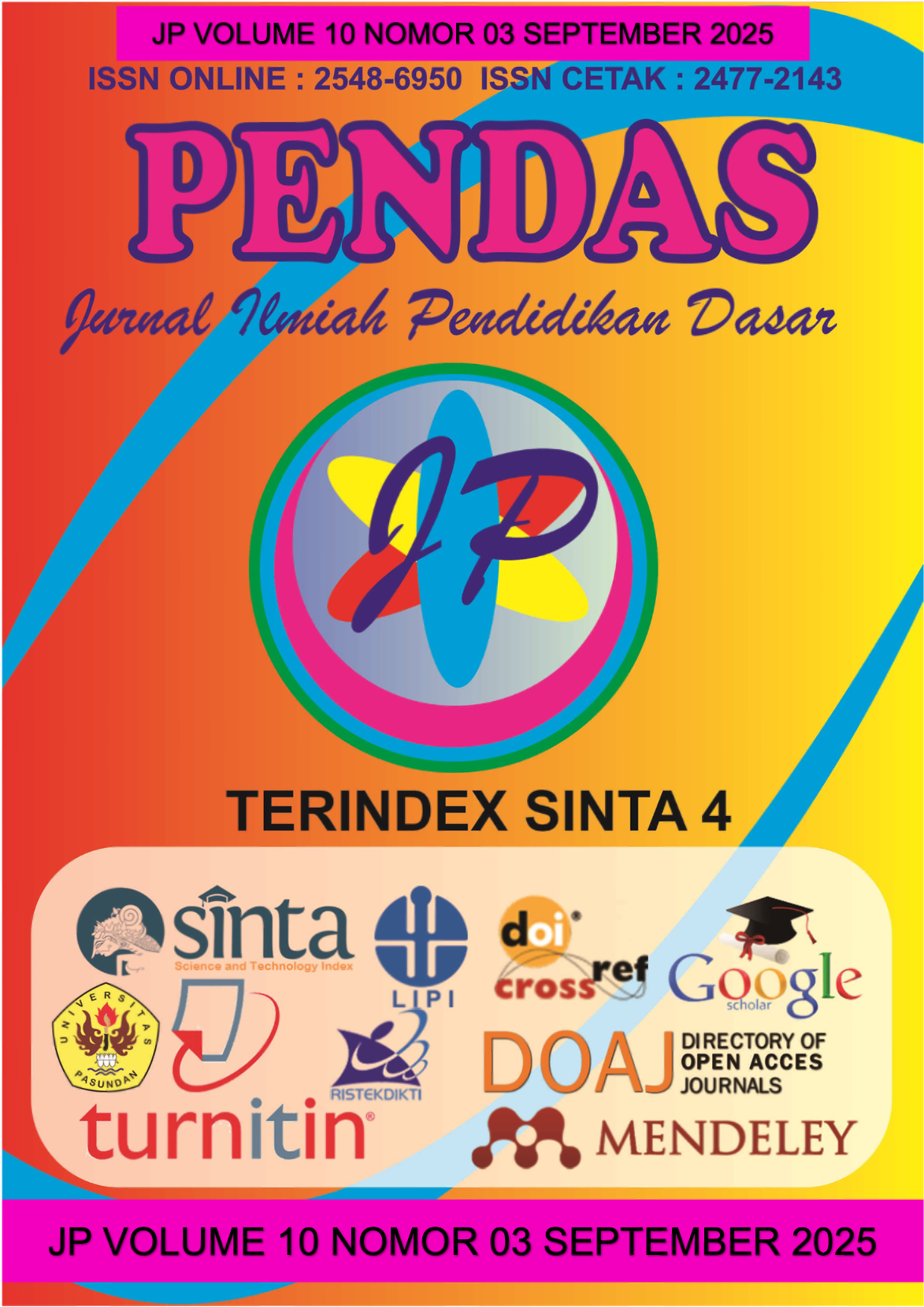PEMBIASAAN PERILAKU ISLAM SEBAGAI BUDAYA SEKOLAH DI KELAS X SMK NEGERI 4 MAKASSAR
DOI:
https://doi.org/10.23969/jp.v10i03.31513Keywords:
Behavioural Habituation, School Environment, Islamic ValuesAbstract
This study aimed to analyse the implementation process of students'
behavioural activities, identify the developed values of Islamic behaviours, and
evaluate the effectiveness of the Qur’anic recitation (Khataman) program in
shaping student behaviours at SMK Negeri 4 Makassar. These activities were
conducted during school days as part of a strategy to cultivate habitual Islamic
behaviours within the school environment. A descriptive qualitative approach was
employed. Data were collected through observations, in-depth interviews, and
questionnaires administered to students participating in the Khataman program as
well as to program mentors. Inductive analysis was used to interpret the meanings
and impacts of these activities on behaviours formation. The findings of the study
were: 1) the planning of Islamic behaviours habituation begins with the formulation
of Islamic-based vision and mission statements, followed by the development of
worship behaviours standards (ubudiyah). As part of this process, Islamic
education teachers promote religious behaviours and plan spiritual activities within
the school, serving as a means to foster a religious atmosphere and enhance
Islamic education learning, 2) Islamic behaviours was instilled through a series of
regular activities—daily, weekly, monthly, and annual, 3) the habituation of Islamic
behaviours contributed to the formation of a Muslim personality in students. A
Qur’anic character can be developed through consistent religious practices
implemented within the school. In conclusion, the habituation of Islamic
behaviours is essential in daily life, particularly in the school environment, as it
aligns with and reinforces Islamic values.
Downloads
References
Bunyamin, A., & Akil, M. (2023).
Peran Guru Pendidikan
Agama Dalam Membina
Akhlak Siswa Di MAN Gowa.
Journal of Gurutta Education,
2(2), 112–129.
Dewi Sadiah. 2015. Metode
Penelitian Dakwah
Pendekatan Kualitatif Dan
Kuantitatif. Bandung: PT.
Remaja Rosdakarya.
Imran, A. Zulfikar, Andi Bunyamin
dan Nursetiawati, “PendidikanKarakter di SMP Negeri 8 Kota
Makassar”, dalam Journal of
Gurutta Education, Vol.I, No.
1, tahun 2021, http://pasca-
umi.ac.id/index.php/jge/article/
view/713/754
Masrukhin, 2014. Metodologi
Penelitian Kualitatif . Sidoarjo:
Media Ilmu Press
Mas’ud. Abdurrahman, 2020.
Paradigma Pendidikan Islam
Yogyakarta: Ircisod
Rahmadi. 2011. Pengantar
Metodologi Penelitian, Cet.I;
Banjarmasin: Antasari Press
Ruslan, Hakim, A., & Hasan, S.
(2024). Peran Guru PAI dalam
Meningkatkan Kemampuan
Membaca Al-Qur’an Siswa
SMA Negeri 15
Makassar. Journal of Gurutta
Education, 3(1), 1-15.
https://pasca-
umi.ac.id/index.php/jge/article/
view/1563/1810
Sandu Siyoto, Ali Sodik, 2015. Dasar
Metodologi Penelitian.
Yogyakarta: Literasi Media
Publishing
Sugiono, 2014. Memahami Penelitian
Kualitatif, Bandung: Alfabeta
Tanzeh Ahmad, 2009. Pengantar
Metode Penelitian,
Yogyakarta: Teras
Undang-Undang Pemerintah
Republik Indonesia No. 20
Tahun 2003 Tentang Sistem
Pendidikan Nasional,Bandung: Citra Umbara, 2003
Downloads
Published
Issue
Section
License
Copyright (c) 2025 Pendas : Jurnal Ilmiah Pendidikan Dasar

This work is licensed under a Creative Commons Attribution 4.0 International License.














































